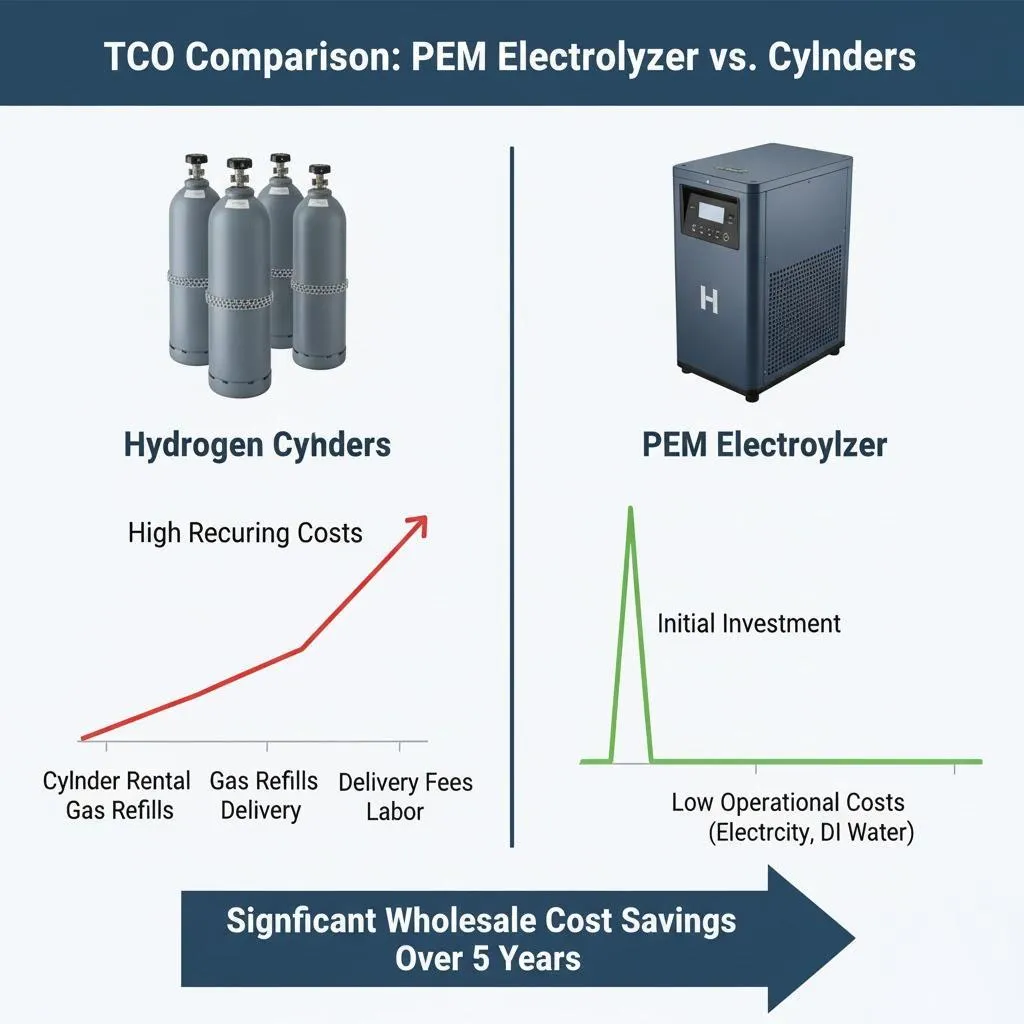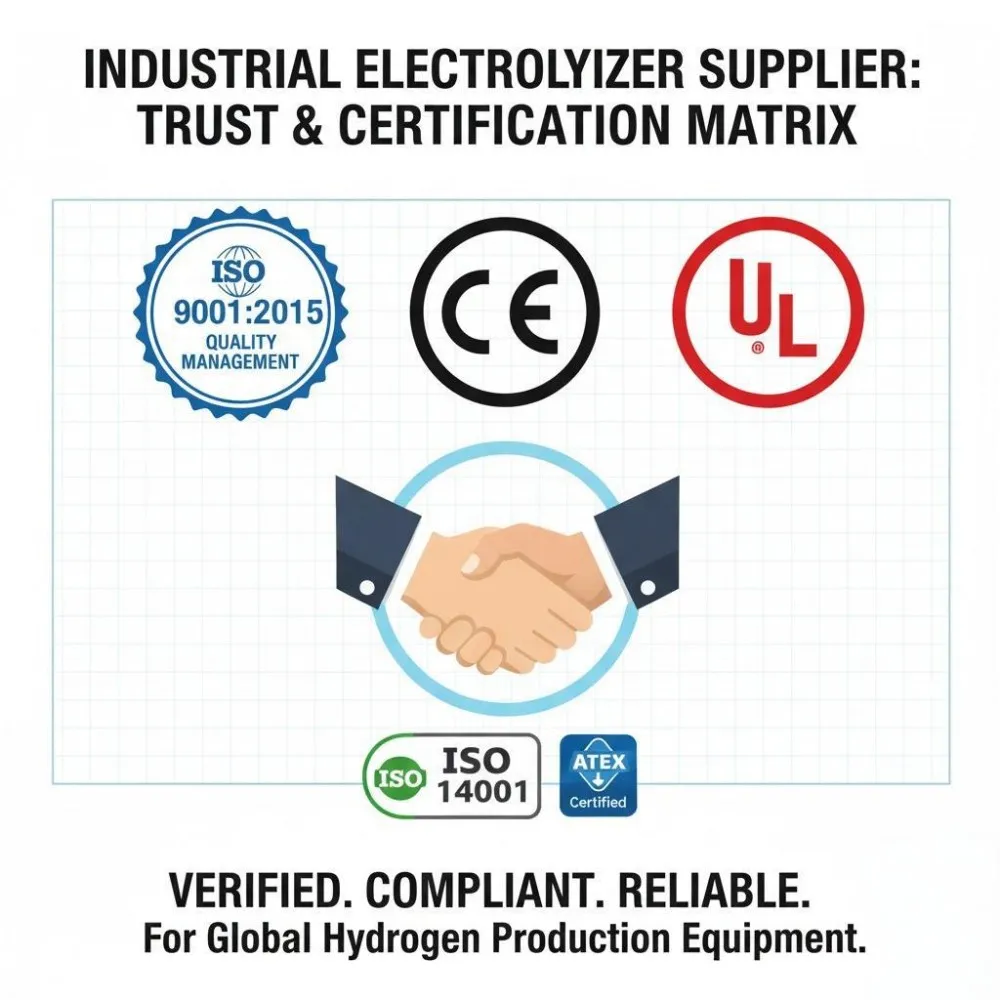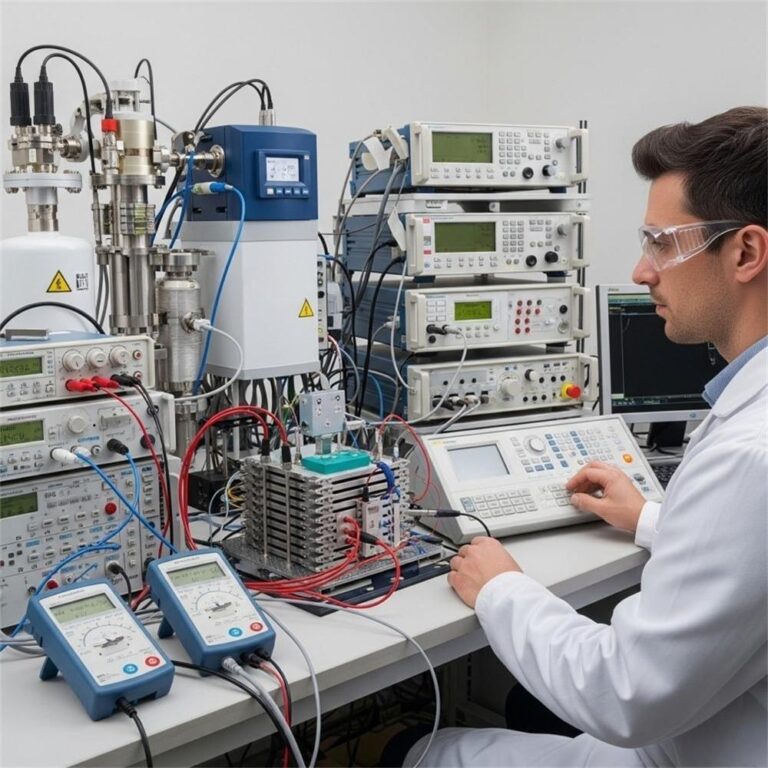Introduction: The Growing Demand for Ultra-High Purity Hydrogen
Hydrogen has emerged as a critical component in the global transition toward cleaner energy and advanced industrial applications. As both an energy carrier and a feedstock, hydrogen is invaluable across multiple sectors. However, not all hydrogen is created equal—many cutting-edge processes require ultra-high purity levels, specifically 99.999% pure hydrogen.
This degree of purity, often referred to as “five nines,” is essential for ensuring product quality, operational safety, and process reliability in industries like electronics, pharmaceuticals, and fuel cells. Meeting this demand calls for sophisticated production methods—hence the vital role of high purity industrial hydrogen generators.
Industries Requiring Ultra-High Purity Hydrogen (99.999%)
Electronics Manufacturing
- Semiconductor Production: Ultra-pure hydrogen is crucial for epitaxial growth, chemical vapor deposition (CVD), and wafer cleaning processes. Even trace contaminants can compromise chip performance.
- LCD/LED Manufacturing: Purity ensures optimal brightness, longevity, and defect-free panels.
Pharmaceuticals
- Drug Synthesis and Research: Hydrogenation reactions require ultra-pure hydrogen to avoid contamination, which could affect drug efficacy.
- Purity and Safety: Maintaining 99.999% purity helps pharmaceutical firms comply with stringent GMP and regulatory standards.
Food Industry
- Hydrogenation of Oils and Fats: Impurities in hydrogen can create undesirable byproducts.
- Consumer Safety: High purity maintains food integrity and safety.
Chemical Industry
- Specialty Chemical Production: Catalysts used in fine chemical production demand uncontaminated hydrogen to remain effective.
- Precise Reactions: Ultra-pure hydrogen enhances the predictability and yield of chemical reactions.
Fuel Cell Technology
- PEM Fuel Cells: Sensitive to impurities like CO and sulfur; 99.999% hydrogen prevents poisoning of catalysts.
- Performance and Lifespan: Pure hydrogen enhances efficiency and extends system life.
Other Niche Applications
- Laboratory Research: Ultra-pure hydrogen supports experimental consistency.
- Industrial Processes: Used in metallurgy, optical fiber production, and aerospace applications.
Technologies for Achieving 99.999% Hydrogen Purity in Industrial Generators
Pressure Swing Adsorption (PSA)
- Process: Uses selective adsorbents (e.g., zeolites) to remove impurities.
- Advantages: Reliable, cost-effective, scalable.
- Limitations: May require downstream polishing to reach 99.999% purity.
Membrane Separation
- Technology: Utilizes palladium or polymer membranes to selectively allow hydrogen molecules through.
- Benefits: High purity output, low maintenance, energy-efficient.
- Use Case: Ideal for applications where compact footprint is essential.
Cryogenic Distillation
- Principle: Separates gases based on boiling points at very low temperatures.
- Strength: Can remove the finest trace impurities.
- Drawbacks: High energy consumption, complex infrastructure.
Combination of Technologies
- Hybrid Systems: Combine PSA and membrane or cryogenic methods.
- Result: Maximum purity, flexibility, and efficiency.
- Example: PSA followed by palladium membrane polishing stage.
Key System Design Considerations for High-Purity Hydrogen Generators
Feedstock Quality
- High-grade feedstock ensures efficient conversion.
- Pre-treatment (desulfurization, deionization) is often necessary.
Material Selection
- Use corrosion-resistant alloys (e.g., stainless steel 316L).
- Avoid materials prone to hydrogen embrittlement.
Process Control and Automation
- Advanced sensors and PLCs ensure purity consistency.
- Real-time monitoring enables rapid response to deviations.
Safety Features
- Explosion-proof enclosures, leak detectors, and alarms.
- Compliance with ISO and IEC safety standards.
Energy Efficiency
- Integration with renewable sources (e.g., solar electrolysis).
- Heat recovery systems to reuse waste energy.
Scalability
- Modular design for flexible capacity expansion.
- Centralized control systems for multi-unit operations.
Verification Methods for 99.999% Hydrogen Purity
Gas Chromatography (GC)
- Uses TCD or FID detectors.
- Effective for separating and quantifying gas mixtures.
Mass Spectrometry (MS)
- Identifies and quantifies trace elements.
- High accuracy and sensitivity.
Online Analyzers
- Real-time purity verification.
- Reduces downtime and manual sampling.
Third-Party Certification
- Validates generator performance.
- Ensures regulatory compliance (e.g., ISO 14687 for hydrogen fuel).
Case Studies: Successful Implementations of High-Purity Hydrogen Generators
Electronics Manufacturing
A leading semiconductor foundry deployed a PSA + membrane hybrid generator to support wafer fabrication. Results included increased yield and reduced defect rates by 15%.
Pharmaceutical Production
A biotech firm implemented a high-purity hydrogen system for drug R&D. This enabled faster approval times and compliance with FDA requirements.
Fuel Cell Application
At a hydrogen refueling station in California, a 99.999% purity generator ensures reliable supply for PEM fuel-cell vehicles. The system operates with over 98% uptime.
Conclusion: The Future of High-Purity Hydrogen in Industry
High purity hydrogen generators are pivotal in modern manufacturing, energy, and chemical applications. As demand rises and technology advances, systems delivering 99.999% purity will become even more vital.
Industrial stakeholders must evaluate generator technologies, verify purity standards, and choose scalable, efficient systems tailored to their needs.
Looking for a reliable high-purity hydrogen solution? Contact our team to explore the best system for your application.
FAQs
1. Why is 99.999% hydrogen purity important? It ensures operational safety, product quality, and regulatory compliance in sensitive applications like electronics and pharmaceuticals.
2. How is hydrogen purity measured? Common methods include gas chromatography, mass spectrometry, and real-time online analyzers.
3. What are the best technologies for generating high-purity hydrogen? PSA, membrane separation, cryogenic distillation, and hybrid combinations are most effective.
4. Is high-purity hydrogen safe to use? Yes, when handled with proper safety equipment and protocols, it’s safe and efficient.
5. Can high-purity hydrogen be produced on-site? Yes, many industrial generators are designed for on-site production to reduce logistics and improve reliability.
6. How do I choose the right hydrogen generator for my industry? Consider purity requirements, feedstock type, scalability, and energy consumption when selecting a generator.







